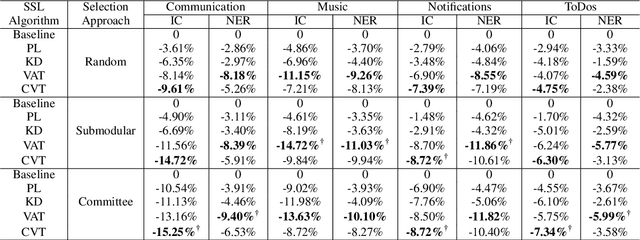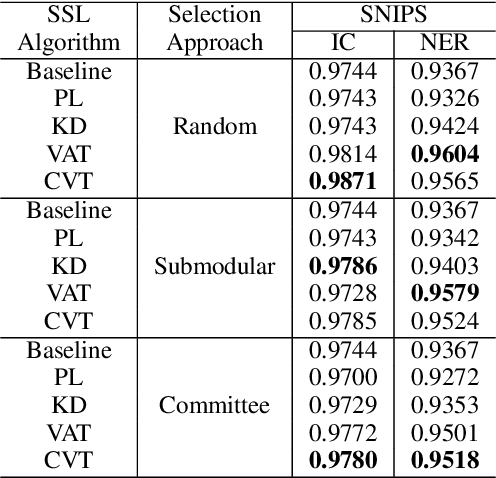Industry Scale Semi-Supervised Learning for Natural Language Understanding
Paper and Code
Mar 29, 2021



This paper presents a production Semi-Supervised Learning (SSL) pipeline based on the student-teacher framework, which leverages millions of unlabeled examples to improve Natural Language Understanding (NLU) tasks. We investigate two questions related to the use of unlabeled data in production SSL context: 1) how to select samples from a huge unlabeled data pool that are beneficial for SSL training, and 2) how do the selected data affect the performance of different state-of-the-art SSL techniques. We compare four widely used SSL techniques, Pseudo-Label (PL), Knowledge Distillation (KD), Virtual Adversarial Training (VAT) and Cross-View Training (CVT) in conjunction with two data selection methods including committee-based selection and submodular optimization based selection. We further examine the benefits and drawbacks of these techniques when applied to intent classification (IC) and named entity recognition (NER) tasks, and provide guidelines specifying when each of these methods might be beneficial to improve large scale NLU systems.
 Add to Chrome
Add to Chrome Add to Firefox
Add to Firefox Add to Edge
Add to Edge